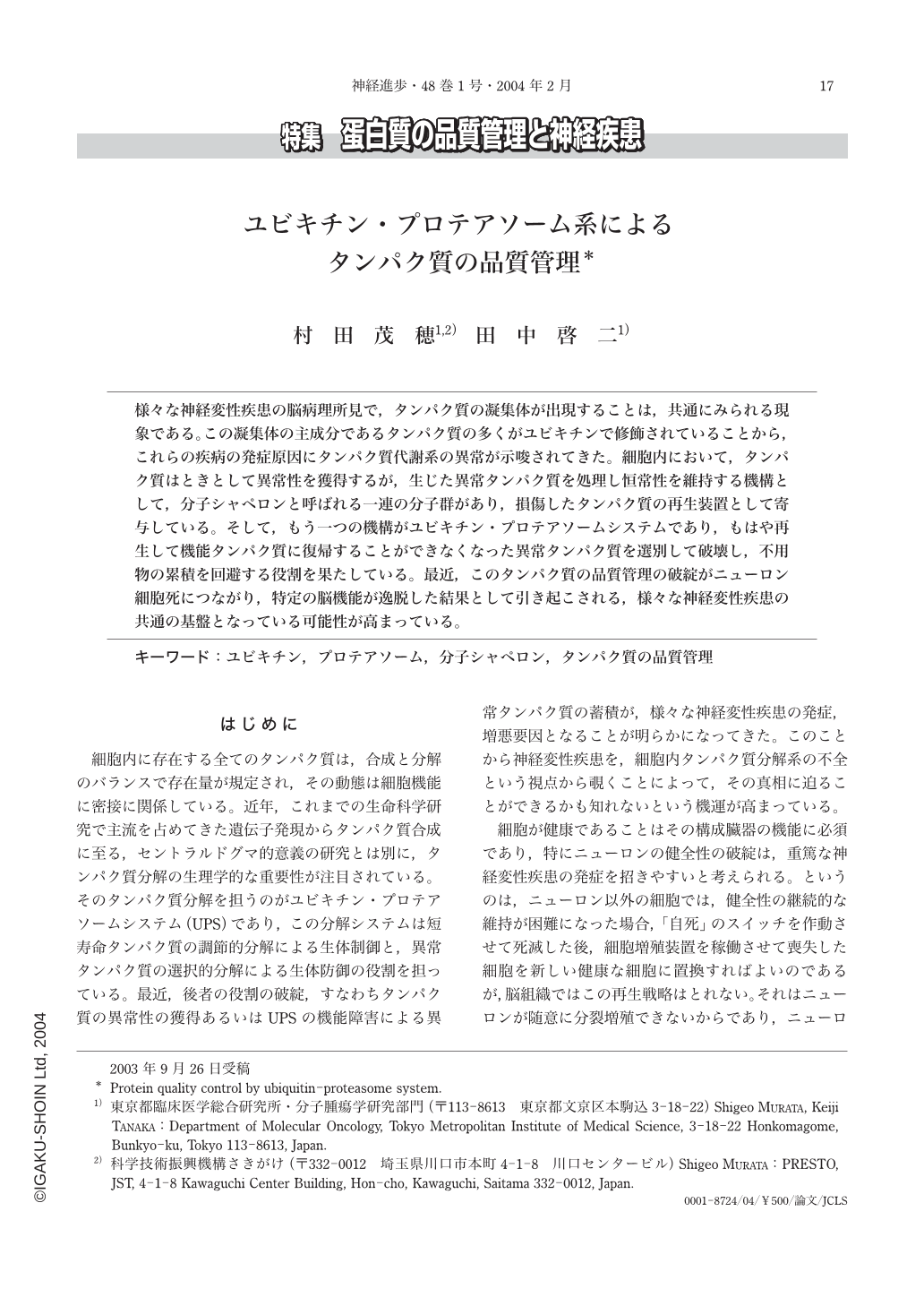Japanese
English
- 有料閲覧
- Abstract 文献概要
- 1ページ目 Look Inside
様々な神経変性疾患の脳病理所見で,タンパク質の凝集体が出現することは,共通にみられる現象である。この凝集体の主成分であるタンパク質の多くがユビキチンで修飾されていることから,これらの疾病の発症原因にタンパク質代謝系の異常が示唆されてきた。細胞内において,タンパク質はときとして異常性を獲得するが,生じた異常タンパク質を処理し恒常性を維持する機構として,分子シャペロンと呼ばれる一連の分子群があり,損傷したタンパク質の再生装置として寄与している。そして,もう一つの機構がユビキチン・プロテアソームシステムであり,もはや再生して機能タンパク質に復帰することができなくなった異常タンパク質を選別して破壊し,不用物の累積を回避する役割を果たしている。最近,このタンパク質の品質管理の破綻がニューロン細胞死につながり,特定の脳機能が逸脱した結果として引き起こされる,様々な神経変性疾患の共通の基盤となっている可能性が高まっている。
Intracellular inclusions of denatured proteins are characteristic features of many neurodegenerative diseases. Since they contain ubiquitinated proteins, it has been suggested that impaired protein metabolism causes these diseases. Cells are equipped with two major mechanisms handling abnormal proteins and maintaining cell homeostasis. One is a series of molecular chaperones, which regenerate damaged proteins into functional state. The other is the the ubiquitin-proteasome system, which catalyzes the immediate destruction of misfolded or impaired proteins generated in cells. These mechanisms play an important role in avoiding toxicity of accumulating abnormal proteins in cells and is called“the protein quality control system.”Failure of this mechanism is assumed to lead to various neurodegenerative disorders.
(Received:September 26, 2003)

Copyright © 2004, Igaku-Shoin Ltd. All rights reserved.


